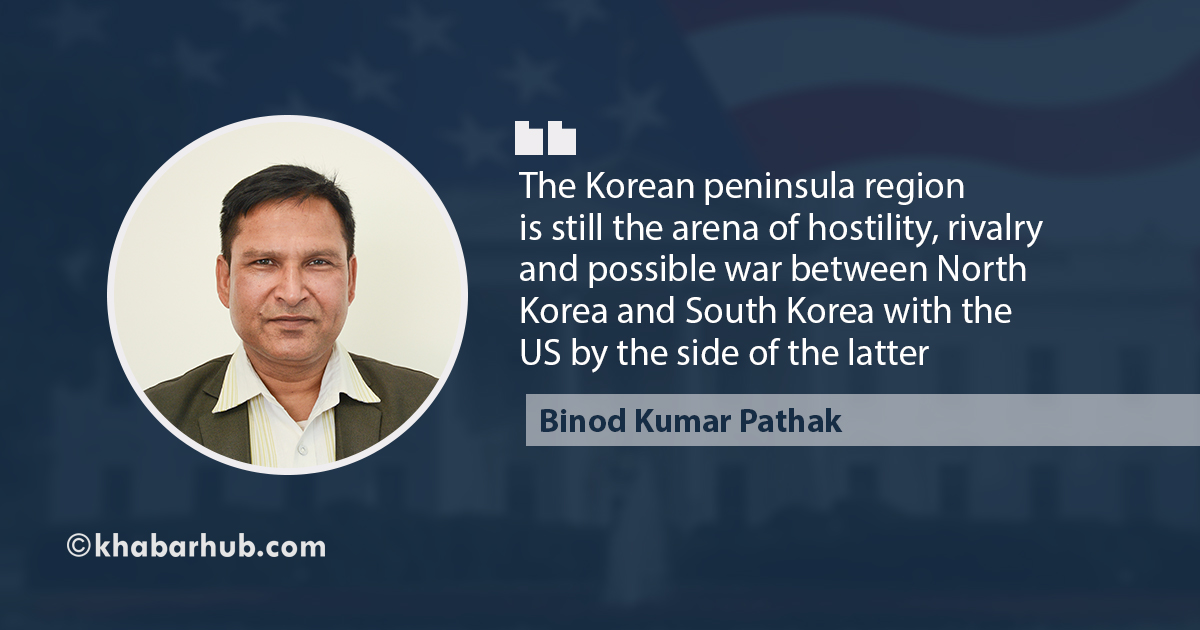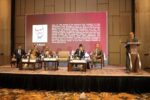Hans Morgenthau says politics is a struggle for power over men, and whatever its ultimate aim may be, power is its immediate goal and modes of acquiring, maintaining, and demonstrating it determine the technique of political action.
Thucydides, Machiavelli, Hobbes, and other classical realists hold the same view to a greater or lesser extent. For realists, international politics is an arena of rivalry, conflict and war among (or between) the states. Every state looks forward to safeguarding once own national interest which is of paramount interest.
It is because states are not equal in their economic and military powers and hence power play between them keep on happening for greater dominance or hegemony to establish over a few or more or all if possible.
The international state system is anarchy where there is no overarching authority to dictate the universally applied rule. Mighty one dictates and others listen and follow otherwise lose the privileges given by stronger states.
It is because states are not equal in their economic and military powers and hence power play between them keep on happening for establishing greater dominance or hegemony over a few states or more or all if possible.
The observation above holds good if we see the decisions taken by the US under President Donald Trump in his term. Before him say the analysts, the US had firmly poised itself to be the responsible super-power guiding the world on democratic values by engaging in different world affairs of contemporary values and relevance such as climatic change, nuclear deal to reduce the stockpile of uranium and plutonium, strategic agreement to reduce the arsenal of dangerous weapons and a range of various social and economic issues.
The more world is disturbed, better it is to establish hegemonic influence for a superpower. Is it the new tactics for President Donald Trump? Maybe, perhaps. Who knows?
In last two years a disruption of sort is taking place in world politics where the US is withdrawing its involvement precipitating all the previous arrangements to fall down and waiting for new situations to emerge and possibly looking for renegotiation in changed circumstances or maybe pushing the world further in anarchic situation to derive maximum mileage of power out of it.
The more world is disturbed, better it is to establish hegemonic influence for a superpower. Is it the new tactics for President Donald Trump? Maybe, perhaps. Who knows?
The Korean peninsula region is still the arena of hostility, rivalry and possible war between North Korea and South Korea with the US by the side of the latter as it was way back in 1994 when the ex-US President Jimmy Carter met the then North Korean leader Kim Il-sung, the country’s founder.
It was Carter’s trip which paved the way for a bilateral deal between the United States and North Korea. However, the current US President Donald Trump seems to be failing in reaping the harvest even after the opportunity being given to him to negotiate better terms with the world’s most isolated state of North Korea on banning the tests of nuclear missiles of all ranges and destroying all the sites where nuclear bombs are being developed.
The tweet in no uncertain words fully explain all the underlying propositions which John J. Mearsheimer, University of Chicago, highlights in his famous work ‘The Tragedy of Great Power Politics’.
Delaying the negotiations may have some bargaining leverage tilting in US favor but one cannot take such a risk with North Korea which can anytime declare itself ‘closed’ for any such future negotiations. We all remember the famous tweet of Donald J. Trump in the early month of the year 2018, “North Korean leader Kim Jong-un just stated that the – nuclear button is on his desk at all times. Will someone from his depleted and food starved regime please inform him that I too have a nuclear button, but it is much bigger and more powerful one than his, and my button works.”
The tweet in no uncertain words fully explain all the underlying propositions which John J. Mearsheimer, University of Chicago, highlights in his famous work ‘The Tragedy of Great Power Politics’.
It is all because of superior economic and military might, President Trump directly took on North Korea but failed to assess the external environment, which Mearsheimer warns of in his work, where out of desperation North Korea may harm the US interest – both national and international by unleashing the nuclear offensive anytime as it keeps on threatening.
It is perplexing for many observers of international politics as to what is holding the US President Donald Trump to go for another extensive talk to dismantle nuclear weapons of North Korea when he himself met North Korean leader Kim Jong-un on June 30, 2019 along with South Korean President Moon Jae-in at the DMZ (Demilitarized Zone) and briefly crossed the borderline into the North Korean side.
This gesture of President Trump made him the first sitting U.S. President to enter North Korea as former US Presidents Jimmy Carter and Bill Clinton had previously visited North Korea only after they left the office. It was no doubt a diplomatic coup because there was no plan to meet Kim like this which is clear from the remark of North Korean leader, “It’s good to see you again”, “I never expected to meet you at this place” and “you are the first US President to cross the border.”
During their meeting, President Trump also invited Kim to the White House, although later acknowledged that it probably wouldn’t happen in the near future (term). After this famous meeting, North Korea has test-fired several missiles of intermediate-range and summit between the two countries is nowhere in sight.
How tragic for South Korea and disruptive for North Korea it was when the Hanoi Summit between the US and North Korea ended without a signed agreement on February 28, 2019. US refusal to come to definitive terms in face of the stubbornness of North Korea gave an excuse to North Korea for rebuilding its long-range rockets at its Sohae Launch facility.
President Trump left the Hanoi summit inconclusive as he was upset over North Korean leader Kim Jong Un’s denial of personal knowledge about Otto Warmbier’s treatment in North Korean custody. Trump warned that it was unacceptable that Kim allowed such abuse on an American citizen.
Otto Frederick Warmbier (December 12, 1994 -June 19, 2017) was an American college student who visited North Korea as part of a guided tour group on December 29, 2015. On January 2, 2016, he was arrested by North Korea at Pyongyang International Airport while coming back to the USA.
He was sentenced to 15 years’ imprisonment with hard labor. Soon after his release, he died. It is for realists to decide whether North Korea can be left without conclusive outcomes of an important summit in Hanoi on an issue of a US citizen’s mistreatment in North Korean prison.
Or, superpower United States of America is pushing the world towards the anarchic state to derive greater advantage out of it or just leaving the space open for other emerging superpowers such as China to fill the vacuum in the Korean peninsula.
Another international incident happened of great repercussions when on May 8, 2018, the United States announced its withdrawal from the JCPA (Joint Comprehensive Plan of Action), unofficially known as the “Iran Deal” or the “Iran Nuclear Deal”.
This deal was reached in July 2015 by Iran, the P5+1 (the five permanent members of the United Nations Security Council – China, France, Russia, United Kingdom, and the United States – plus Germany) and the European Union.
The US withdrawal led to militarization and destabilization of the Strait of Hormuz — a sea passage from the Persian Gulf to the open ocean. Maritime attacks from Iran and the US along with the seizure of British ship are in news.
Impending war and continuous verbal assaults from both sides — Iran and US — have thrown assiduously attained stability into winds. In yet another incident, the United States formally withdrew from a landmark nuclear missile pact with Russia on August 2, 2019, after alleging that Moscow violated the treaty, which the Kremlin has repeatedly denied.
U.S. President Trump announced that the US will no longer adhere to the 1987 arms control accord, known as the Intermediate-range Nuclear Forces Treaty (INF). The treaty bans either side from stationing short- and intermediate-range, land-based missiles in Europe.
As Inis L. Claud has observed, ”The trouble with the balance of power is not that it has no meaning, but that it has too many meanings.” Is it really a balance of power when you see a series of withdrawal from important obligations? Or, a balance of power means to unleash imbalance among those states seemingly hanging in balance. In fact, balance of power is a misnomer which never hangs in balance.
(Views expressed in this article are the author’s own and do not necessarily reflect Khabarhub’s editorial stance).









Comment